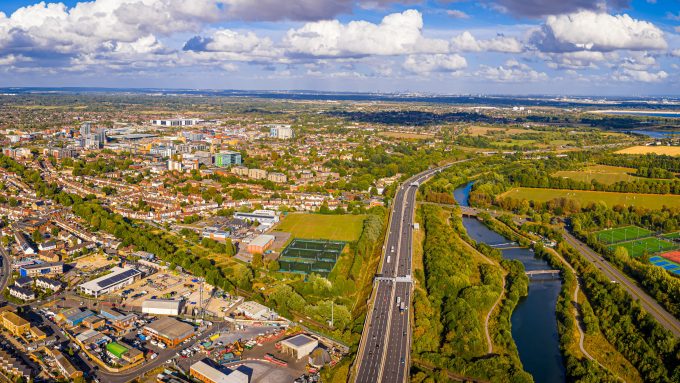
City leaders call for innovation push

Britain’s economy is increasingly an urban economy; and when big cities do well, their hinterlands do well, remarked Andrew Carter, Chief Executive of the Centre for Cities, during a panel session he chaired.
“The question is how we use innovation to stimulate economic growth and prosperity,” he added. “Cities in the UK offer a real opportunity to do more.”
Andrew said that the economy of Britain “is in a hole,” and has been for the best part of 20 years, with “very little economic growth and prosperity across the country.
“Part of the challenge is not to describe what we are currently doing, but to ask ourselves collectively what we can do more of,” he continued, “because what we are doing is clearly not enough”.
Stephen Jones, Director of Core Cities UK said that density drives growth, and “we need to crowd more people in” to conurbations. Encouraging more people and businesses to live and work in urban areas helps to stimulate innovation for the benefit of the economy, he offered.
But he noted that politics can sometimes pull in the opposite direction; with some suggesting that because cities have done well recently, investment should be focused elsewhere. “We need to double down on making our big cities better, faster growing, more dense, with more investment and jobs," Stephen said.

“How we square ‘going for growth, versus not leaving anyone behind’ still remains a big political challenge.”
Stephen was also keen to dispel myths that technology represents the ‘death of distance’ or we will ‘all move to live in virtual spaces’ – which may mean physical places are not so important any more.
“It’s just rubbish – people like being with other people,” he said, adding that cities that invest in areas to make them “nice places to be, and where you can conduct business, is absolutely critical.”
Kellie Beirne, Chief Executive of Cardiff Capital Region said her authority’s ambition is for innovation-led growth to be not just about raising productivity, but that has a clear direction too. “We care about the kind of economic growth we are trying to create.”
She said it is important to reframe what we mean by ‘innovation’.
“For us, it isn’t just about science, technology, businesses and entrepreneurship; innovation has to be alive and well in our public services where we need novelty and ingenuity.”Kellie Beirne, Chief Executive of Cardiff Capital Region
Kellie added that innovation should be about the everyday economy – food, tourism, care, high streets – and the way in which it can help to unlock ideas. “The pandemic and its aftermath reminded us that this thing called ‘economic development’ can’t be about growth in isolation, it’s got to be about the ability to respond to and anticipate societal issues – as well as economic growth.”
She added that success means “sticking to a discipled plan around the things we feel that will help us to turn a corner”.
London Councils’ Strategy Director for Local Government, Finance and Improvement, Paul Honeyben was asked for his thoughts about how to reinvigorate a sense of dynamism in the capital.
He spoke of the recently published London Growth Plan which focuses on London’s core sectors including financial and professional services, the experience economy and the creative economy.
“The thing we are most excited about in the plan is something we are calling ‘frontier innovation’ – creating breakthrough technologies in things like AI, quantum computing, bio-engineering, advanced robotics and materials science.”
Paul added that London always has been good about adopting innovation – digital and tech over the last 20 years – but that hasn’t always originated in London.
He said the biggest opportunity within frontier innovation is around developing advanced manufacturing partnerships with cities and regions outside London. “Frontier innovation will be one of the biggest growth areas in the next few years, and an opportunity for collaboration with the wider UK.”
Paul also said the growth in frontier innovation is part of London’s economy becoming more polycentric with an increase in smaller centres of growth through innovation districts: linked to universities and NHS Trusts.

Place-based innovation hailed by mayor
Also at the Summit, delegates heard from Steve Rotheram, the Mayor of the Liverpool City Region Combined Authority who championed the recent “renaissance” in the region and the “power of place-based innovation”.
“Cities and regions are the beating heart of the UK’s economy, and in our area, innovation, investment and ambition are driving real, tangible change,” he said.
“Connected Places Catapult has been really important in helping us to deliver that vision for innovation-led growth, and their presence brings national and international expertise to the Liverpool City Region that strengthens our ability to create thriving, connected communities.”
He spoke of recent collaborations with the Catapult on initiatives such as the Liverpool to Belfast green shipping corridor, and an innovation twins programme with South Korea which brings the Liverpool City Region together with Busan Metropolitan City.
"Collaboration is based on connectivity – whether that is transport, digital, geographical, political, or even philosophical. It is crucial to our success and ultimately underpinned by people – they are the innovators and entrepreneurs and the communities that make our ambitions a reality."
To watch a wrap-up video summarising this year's Connected Places Summit click here. To watch the full video of the local growth discussion on video on demand, see below.
Panel discussion: How can the UK's cities and regions help kickstart the economy?
Spotlight on Liverpool City Region





